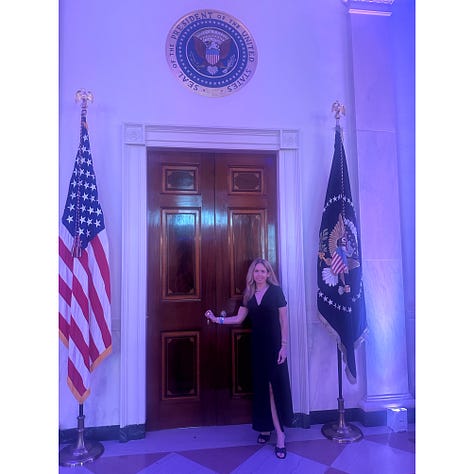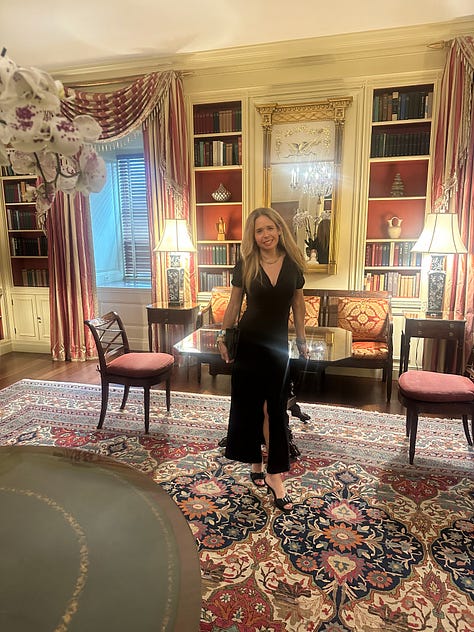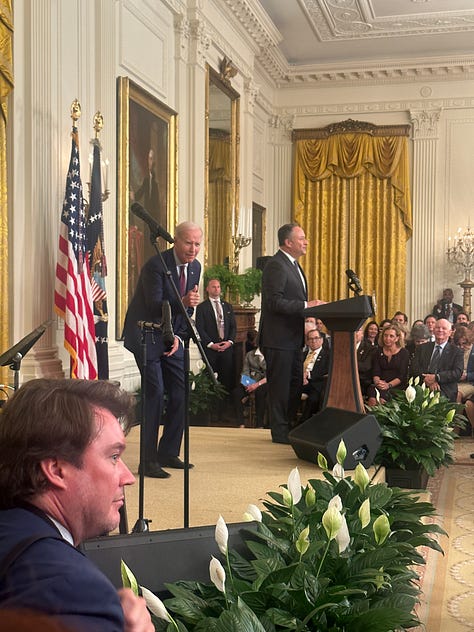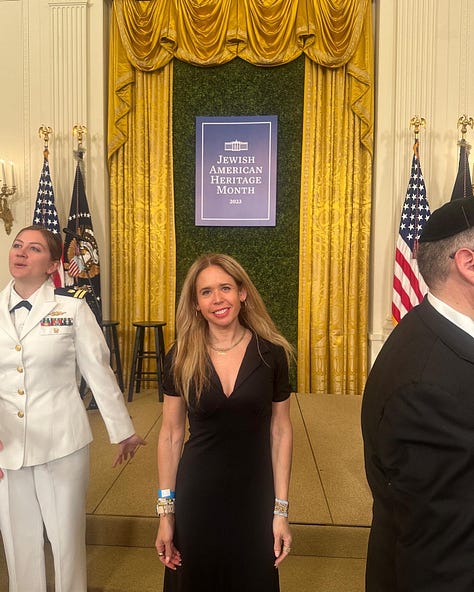I got invited by President Joseph Biden and First Lady Dr. Jill Biden to attend the first-ever Jewish American Heritage Month celebration at the White House on May 16th. It was my first time inside the White House and I am still pinching myself. I tried to play it cool that day but I do not think I was successful in my goal. I apologize to everyone I asked to take photos of me. If you follow me on social media, I am sure you received a deluge of my White House posts in your feed. Like these below. LOL. Sorry not sorry :)






With antisemitism on the rise in America and across the globe, we rightfully spend a lot of time focusing on that hate when talking about the Jewish community. According to a recent report from the Anti-Defamation League, there were 3,697 antisemitic incidents throughout the United States in 2022. This was a 36 percent rise from the year before.
Despite this depressing data, it was refreshing to spend an afternoon celebrating Jewish culture. President Biden, First Lady Jill Biden, and Second Gentleman Douglas Emhoff delivered remarks. There was also a performance by the stars of “Parade” on Broadway, Ben Platt, Micaela Diamond, and Jason Robert Brown. Then there was a reception with food by guest chef, Mike Solomonov.
I consider myself culturally Jewish but I cannot tell you the last time I was inside a Temple. My family tends to celebrate the big Jewish holidays in our own way. (I did have a Bat Mitzvah!) However, I have found myself more proudly asserting and celebrating my Jewish identity after enduring a deluge of antisemitic attacks online over the past few years.
I have also been more mindful in my classes to teach about antisemitism and the Holocaust. Especially after reading this 2020 survey that was the first-ever 50-state survey on Holocaust knowledge of American Millenials and Gen Z. It revealed that:
63 percent of all national survey respondents did not know that six million Jews were murdered
36 percent thought that “two million or fewer Jews” were killed during the Holocaust.
Although there were more than 40,000 camps and ghettos in Europe during the Holocaust, 48 percent of national survey respondents could not name a single one.
You can read more about this 2020 survey in this NBCNews.com article.
In response to this data, when we got to the World War Two lessons in my AP U.S. History classes this year, I made sure to carve out a day to teach about the United States and the Holocaust. I highly recommend these lessons designed around the Ken Burns documentary, “The U.S. and the Holocaust.”
Although it is crucial to teach about the Holocaust, I found this article by Dara Horn (“Is Holocaust Education Making Antisemitism Worse?”) in The Atlantic to be really thought-provoking. Here is an excerpt:
Holocaust education remains essential for teaching historical facts in the face of denial and distortions. Yet over the past year, as I’ve visited Holocaust museums and spoken with educators around the country, I have come to the disturbing conclusion that Holocaust education is incapable of addressing contemporary anti-Semitism. In fact, in the total absence of any education about Jews alive today, teaching about the Holocaust might even be making anti-Semitism worse.
I highly recommend reading the entire article by Horn as it challenges how we teach about the Holocaust. She has made me reflect on other ways I can address antisemitism as an educator beyond just teaching about the genocide.
In fact, my overall takeaway from The Atlantic article aligns with the purpose of Jewish American Heritage Month: to recognize Jewish contributions to American culture, history, military, science, government, and more. Too often students first learn about the Jewish people in social studies class when they study the Holocaust. It is essential that we frame the Jewish experience in the world and the United States beyond the struggles we have faced as a people.
That goes for all marginalized groups that we teach about in school. There needs to be a balance between celebrating a people’s accomplishments without whitewashing the discrimination and challenges they face. In other words, we must stay committed to teaching complexity.
Thank you for reading and for all your support. I don’t charge for my newsletter (or any of my content), but if you ever want to send me money for a coffee or a snack, here’s my Linktree. Have a great week. I will be back with another post later this week!




